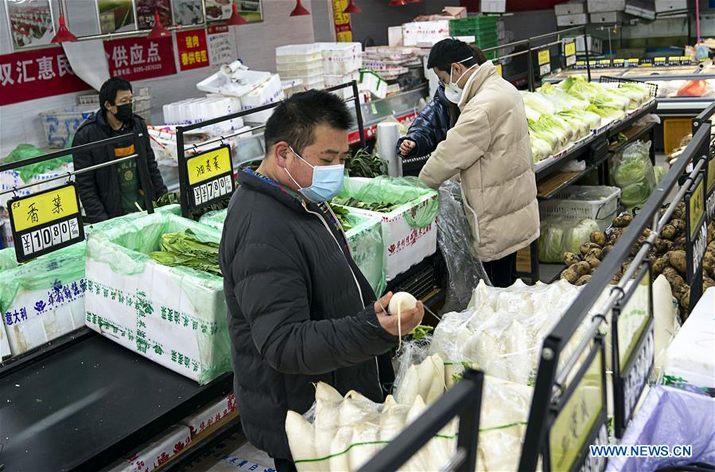
Residents shop at a market in Wuhan, central China's Hubei Province, on January 27, 2020. Residents in Wuhan continue their lives as efforts are being made to control the novel coronavirus outbreak (XINHUA)
 The suspension of public transportation in Wuhan, the epicenter of a new coronavirus outbreak, is a necessary step to curb the spread of the deadly epidemic.
The suspension of public transportation in Wuhan, the epicenter of a new coronavirus outbreak, is a necessary step to curb the spread of the deadly epidemic.
The decision to close off the megacity of over 10 million people since January 23 was taken based on experts' suggestions to contain human-to-human transmission of the virus. Many other cities have also adopted preventive measures such as temporary closure of tourist sites and cancellation of mass gatherings.
According to official statistics, 4,515 confirmed cases of pneumonia caused by the novel coronavirus had been reported in 30 provincial-level regions in China by the end of January 27. A total of 106 people died of the disease.
The lockdown does not restrict the transportation of daily necessities, nor does it mean an indiscriminate travel ban. It is a measure to ensure public safety and should not be regarded as human rights violations. The restrictions will be lifted once the number of new infections in Wuhan posts a significant decrease.